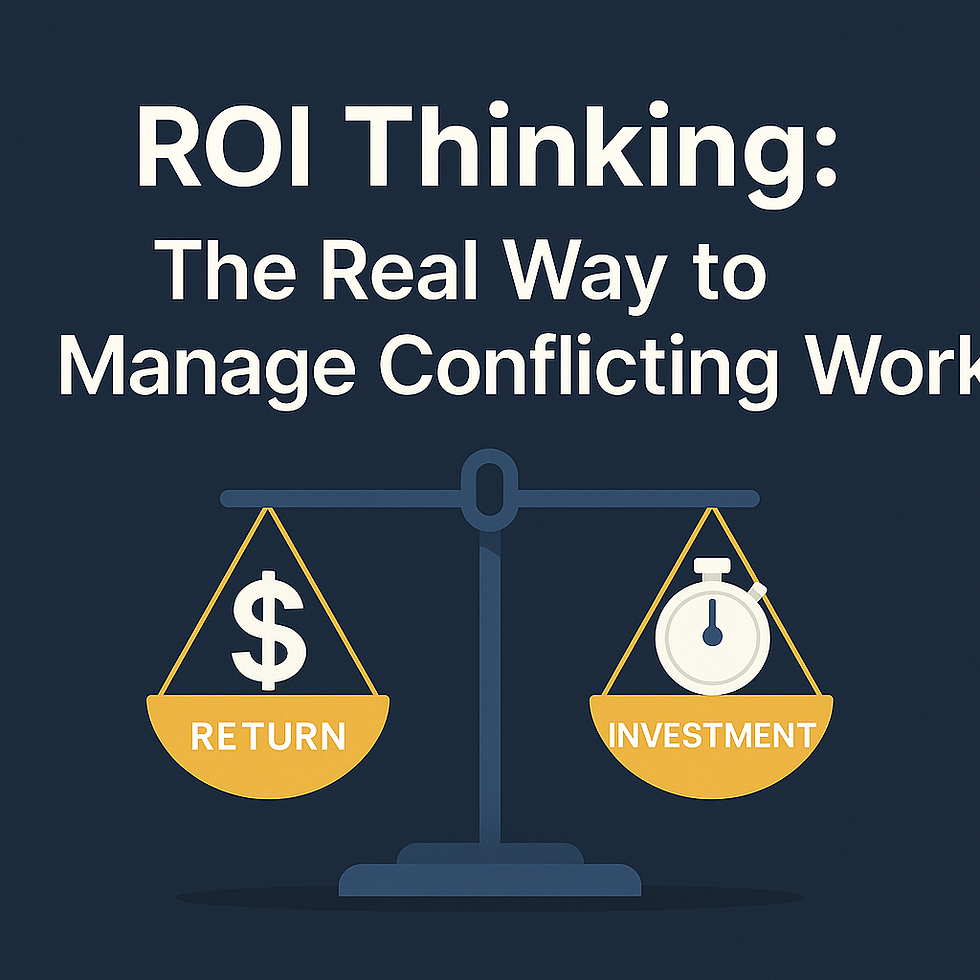What Do They Really Mean by Problem Solving and Critical Thinking?
- Admin
- Jun 30, 2025
- 3 min read

You’ll find them everywhere — whether it’s an entry-level internship or a senior-level leadership role.
Problem Solving. Critical Thinking.
They're listed in almost every job description.But we rarely pause to ask: What do they actually mean?
We assume problem solving means “you solve problems.”
We assume critical thinking means “you think hard.”
But if it were that simple, why would companies go out of their way to list them — across every level, every role, every industry?
Let’s break it down.
Problem Solving Is Not Just Doing Your Job
I used to take problem solving literally.
You have a Jira ticket? You solve it.
You write some code? You ship it.
You build an architecture diagram for a solution? Job done. Problem solved.
But that’s not the kind of problem solving they’re talking about.
Because that’s just doing your job.
And while important — it’s not what they mean when they list problem solving as a core skill.
When Problem Solving Actually Shows Up
It shows up when you’re:
Put on a cross-functional team with new people and no context
Asked to lead a feature in a tech stack you’ve never worked in
Tasked with solving something nobody has solved before in your org
That’s when “problem solving” becomes a meta-skill.Not solving known tasks — solving new situations.
Now, what does it take to truly solve a problem like that?
Not deep knowledge of every tool
But just enough knowledge across tools, people, processes
Enough to stitch together a workable solution within time, budget, scope
It’s about navigating ambiguity, pooling resources, and moving forward when nobody else has a playbook.
And yes, that is a skill worth listing.
Demonstrating Problem Solving in Interviews
Interviewers aren’t looking for whether you’ve completed tasks.They’re asking:
When was the last time you led something you weren’t prepared for?
How did you adapt to a problem you’d never seen before?
What did you deliver — and how did you lead others through the unknown?
That’s what separates you.
Critical Thinking Is Film Critique, Not Just Deep Thought
Now let’s talk about critical thinking.
What is it really?
We throw the phrase around, but let’s make it tangible.
Think of it like being a film critic.
What does a film critic do?
They don’t just say what worked.
They point out what didn’t.
They question choices.
They explore how it could have been better.
A good critic is constructive — not just negative — but not afraid to say:
This character arc didn’t land.
That sequence dragged.
This scene could’ve been more impactful if…
The Business World Needs More Film Critics
We don’t run businesses like this enough.
Most employees accept the systems they’re given.We say, “That’s how it’s done here.”
Critical thinking is about critiquing the current state — intelligently, constructively, repeatedly.
You ask:
Why are we doing things this way?
Can this be done more efficiently?
What if we reprioritized?
Is this the best architecture given what’s coming next quarter?
This isn’t rebellion. It’s evolution.
It’s how businesses — and individuals — avoid getting disrupted.
Critical Thinking Happens Bottom-Up, Too
Most people think critical thinking is reserved for leadership.
It’s not.
Engineers can question how features are scoped and sequenced.
Designers can push for better workflows.
Analysts can challenge the metrics teams chase.
Developers can propose reusable patterns instead of redundant code.
The point is: if you don’t critique your world, someone else eventually will — from the outside.
Final Thought: Meta-Skills Aren’t Optional
Problem solving and critical thinking aren’t buzzwords.
They’re meta-skills — the kind that tell employers how you’ll grow, how you’ll lead, and how you’ll adapt to whatever the role demands six months from now.
They matter because they’re not tied to today’s tools that you know— but to tomorrow’s problems. And in a world where the only constant is change, those are the skills worth developing.



Comments